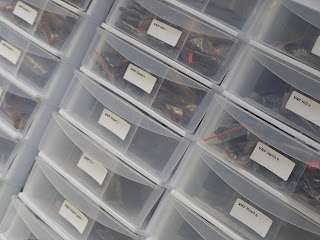Tuesday Musical Concert Series
Gabriela Montero, piano
Joslyn Art Museum
Witherspoon Concert Hall
Februrary 26th, 2008 7:10p.m.
More concert events for you local readers and classical lovers. If you haven't heard of the Tuesday Musical Concert Series go check them out. Originally established in 1892 as a morning music club, their first concerts was held in local homes around Omaha and in the historic Fontennelle Hotel Ballroom. Eventually, it expanded out into local theaters and it has become a non-profit concert series of international artists open to all.
 This month, the concert series features, Gabriela Montero.
This month, the concert series features, Gabriela Montero.
Gabriela Montero, piano
Joslyn Art Museum
Witherspoon Concert Hall
Februrary 26th, 2008 7:10p.m.
More concert events for you local readers and classical lovers. If you haven't heard of the Tuesday Musical Concert Series go check them out. Originally established in 1892 as a morning music club, their first concerts was held in local homes around Omaha and in the historic Fontennelle Hotel Ballroom. Eventually, it expanded out into local theaters and it has become a non-profit concert series of international artists open to all.
 This month, the concert series features, Gabriela Montero.
This month, the concert series features, Gabriela Montero."Born in Caracas, Venezuela, Gabriela Montero has been performing since age 5. Improvisational skill is a huge part of the talented classical musician that she has become. After performing a concert or recital, she often improvises audience requests for an encore, "I connect with my audience in a unique way," Montero says, "and they connect with me." Montero has pursued her career mainly in Europe, where she has been championed by pianist Martha Agerich. Montero offers exciting playing from start to finish. You will want to be there for her Omaha performance."





















